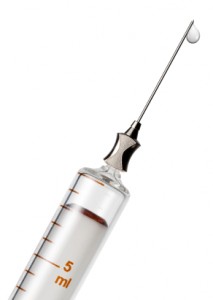Do Vaccinations Cause Autism?
A recent study published in The Journal of Pediatrics reports that vaccinations are not a risk factor for developing autism spectrum disorder (ASD) later in life, even when multiple vaccines are given at once. The study, conducted by researchers at the Centers for Disease Control and Prevention, included an intensive assessment of antibody-stimulating protein and polysaccharide content in vaccines administered to children between 1994 and 1999. Explore below to learn more about the ASD/vaccine controversy.

Vaccinations have received a great deal of media and research attention as a potential cause of autism. The scientific research community has extensively investigated the provocative link between autism and vaccination. A number of rigorous studies published in peer-reviewed journals have failed to establish any association between autism and measles, mumps, and rubella (MMR) vaccination.
With his 1998 publication in The Lancet, the British gastroenterologist Andrew Wakefield ignited a firestorm of controversy when he proposed that the measles, mumps, and rubella (MMR) vaccine causes autism.1 As a result of his claim, the MMR vaccine and the vaccine preservative thimerosal are the most scrutinized potential environmental causes of autism to date. Multiple studies conducted by researchers in the United States, the United Kingdom, Europe, and Japan have failed to establish any causative link between vaccinations and autism.2,3,4,5,6,7,8,9 Moreover, the catalyst for the dangerous anti-vaccine movement, Wakefield’s original study, has been formally retracted by The Lancet and repudiated by the scientific community due to data falsification.10 Although the vaccine–autism link has been widely discredited, the dangerous misconception that vaccines cause autism persists in the face of no sound scientific evidence.
Thimerosal, a mercury based compound that was used as a vaccine preservative that has garnered a lot of attention due to association with autism. A large, retrospective study investigating the association of thimerosal-containing vaccines and neurodevelopmental outcomes was inconclusive and called for further research into vulnerability factors11. Rodent models have been established to further elucidate a possible association and mechanism. [AutDB]
| References: |
|

